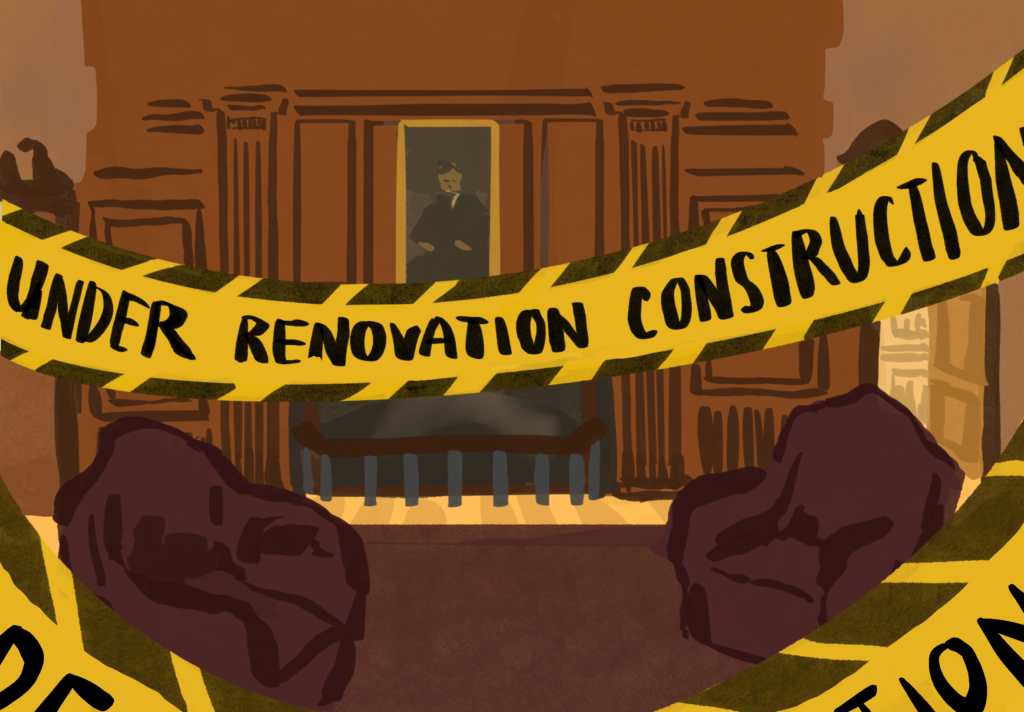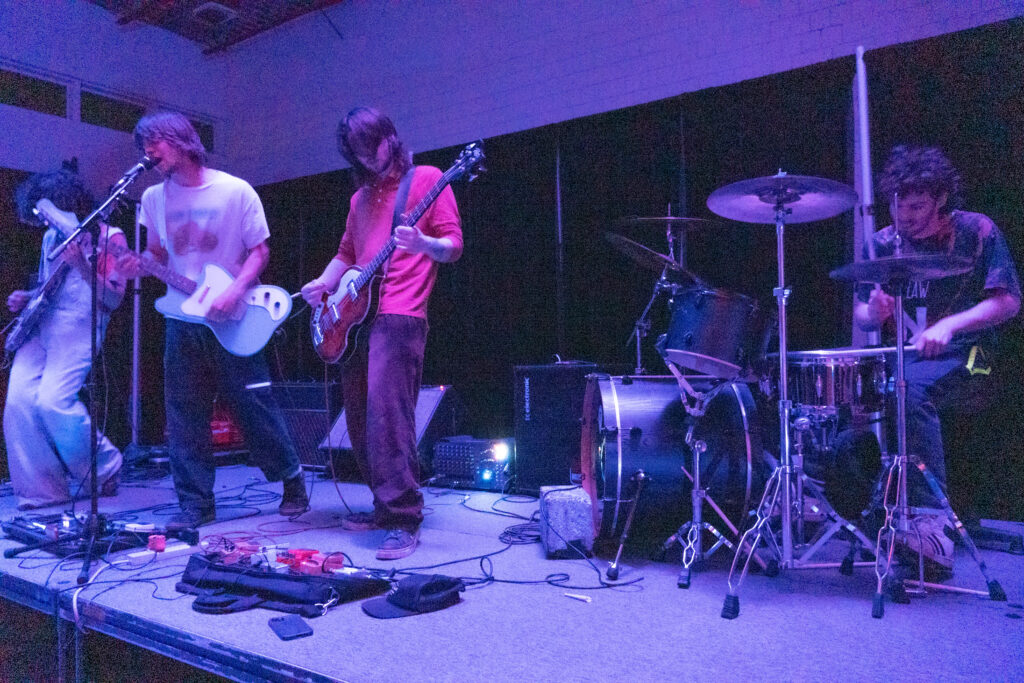
Dr. Jelani Cobb addresses the School in Colony Hall.
On the evening of October 18, Dean of Columbia University Graduate School of Journalism, Dr. Jelani Cobb, gave the 2022 Thalheimer Lecture. He spoke to the Choate community on the topic of gun violence and its pressing threat on social stability and public health in the United States.
Raised in Queens, New York, Dr. Cobb’s early fascination with language and story-telling motivated him to pursue a career in journalism. Today, he is well-known for his pieces on race, culture, and politics. In addition to writing for The New Yorker for the past decade, Dr. Cobb has received a number of accolades, including a nomination for a Pulitzer Prize in Commentary, and has published multiple books such as To the Break of Dawn: A Freestyle on the Hip Hop Aesthetic. He is also an avid educator, having taught African American History and having served as the director of the Africana Studies Institute at the University of Connecticut prior to starting in his role as Dean at Columbia University.
Dr. Cobb’s experience as an educator and writer was evident in his speech, as he created a compelling narrative that tied together the historical development of American cultural concepts — hypermasculinity reflected in westward expansion, personal anecdotes of encounters with gun violence, and modern-day discourse over gun ownership as a political and societal issue.
Drawing from memories of being a college student in Washington D.C., Dr. Cobb elaborated on the distressingly regular presence gun violence had in his life and in others’ lives — an issue exacerbated in communities with racial minorities, high levels of poverty, and limited access to education. From discussing the context of the second amendment — the right of gun ownership as a method to quell revolts by enslaved people — to the cyclical nature of firearm purchasing and crime, Dr. Cobb provided a meaningful, thought-provoking address that left students eager to ask questions at the end of the keynote presentation.
Upon hearing Dr. Cobb’s experiences, many students who hadn’t previously been exposed to situations relating to gun violence gained a new perspective. Journalism student Nicholas Ng ’23 shared, “Dr. Cobb captured a story that needed to be shared. While I never really considered gun violence attending Choate and coming from a place where guns are illegal, his speech not only introduced the subject but also gave insight into the implications that come with accessibility to firearms.”
The speech also deepened students’ understanding of the role of firearms in America with regards to politics and culture. Cassatt Boatwright ’24, a member of the John F. Kennedy ’35 Signature Program in Government and Public Service (JFK), said, “I learned that when it comes to guns, it is mainly about culture rather than anything else, which really shows how our history affects us to this day.”
Another student in the JFK program, Aubrie Williams ’24, added, “I thought Dr. Cobb’s speech was very inspiring, and I liked how he touched on the nuances of gun violence in America. It really made me think about how it affects our daily lives and individuals from different backgrounds and environments.”
Preceding his speech to the entire student body, Dr. Cobb attended a Q&A session with students involved in journalism, politics and government, and sociology, where he answered questions on issues including the future progression of journalism and the democratization and power of media.
One particularly intriguing discussion topic was Dr. Cobb’s career experience as a journalist in the digital age. Leila Sheriff ’24 said, “He was so knowledgeable on the state of modern journalism, especially in a world where there’s so much misinformation circulating.”
Through both his keynote address and Q&A session, students were given the unique opportunity to delve into timely and critical dialogue around gun-violence — a subject they might not have been as knowledgeable about in the past. Ng reflected, “I think Choate tries to find relevance in the speakers they invite. In today’s age of political polarization and heightened interpersonal conflicts based on identity, welcoming speakers such as Dr. Cobb allows the student body to gain insight into pressing societal problems through meaningful discussion.”



